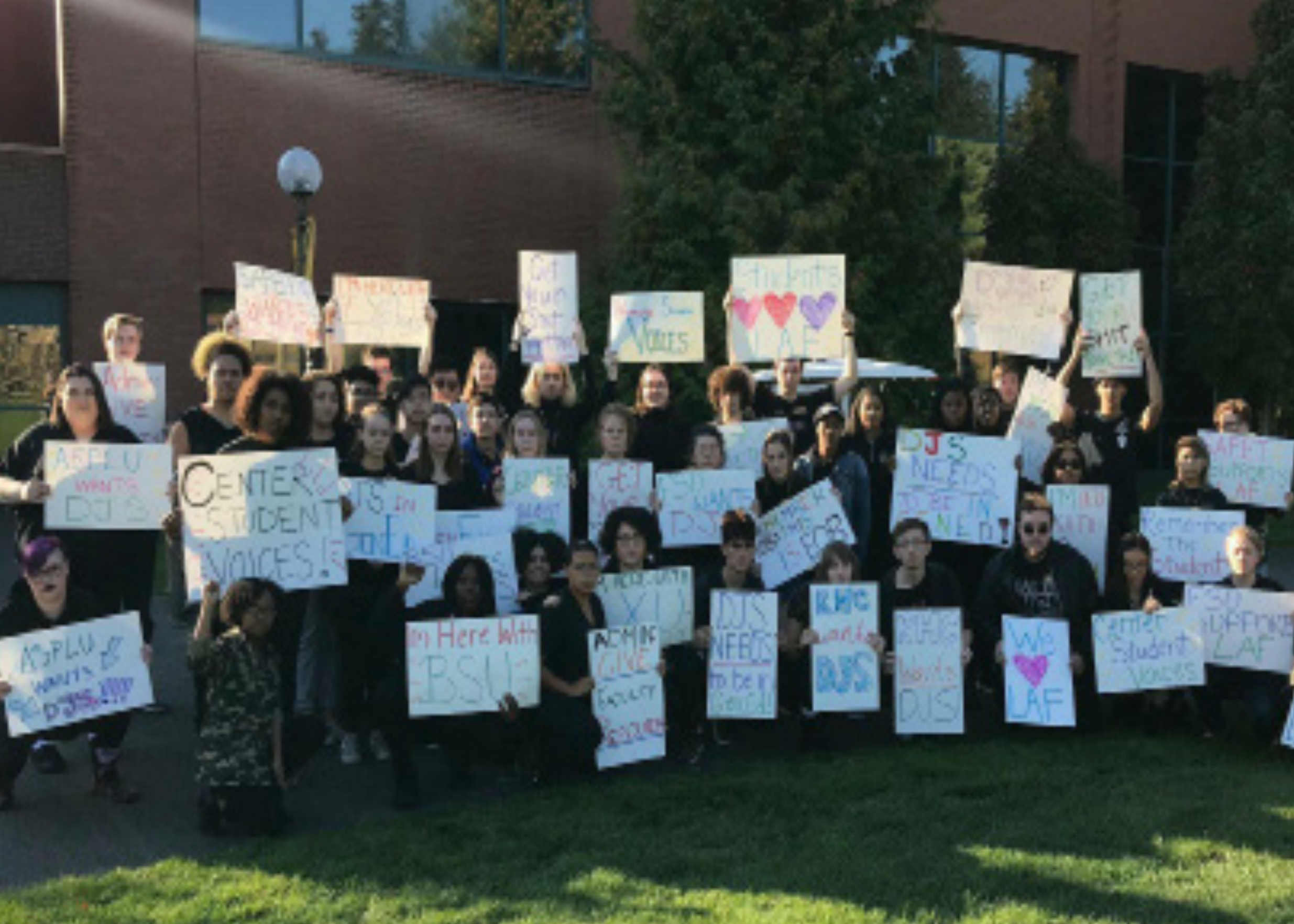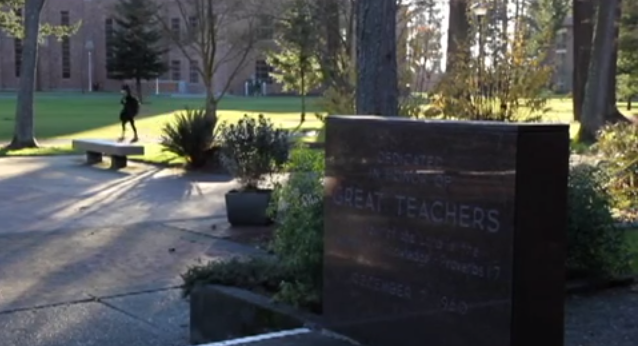By: Brennan LaBrie
Clad in black and lined up outside Leraas Lecture Hall, over forty students surprised administrators and staff arriving at the October faculty assembly.
The students carried signs calling for the implementation of Diversity, Justice and Sustainability (DJS) in Pacific Lutheran University’s (PLU’s) general education requirements. The silent protesters were greeted with smiles, nods and words of encouragement from some faculty members, while other members inquisitively read the protest signs held by the students.
The protest was organized by Aziza Ahmed and Gracie Anderson, the student representatives to the Ad Hoc General Education Committee. The committee was created by administration in early 2018 and tasked with drafting new general education requirements.
The committee, made up of Ahmed, Anderson, two administrators and eight faculty members, drafted four proposals based off of student and faculty surveys and conversations. These proposals were presented to the faculty assembly in May.
The strongest elements of the four proposals were condensed into one over the summer. The proposal, called the Liberal Arts Foundation, created two Gen-Ed paths for students: the Diversity, Equity and Justice path and the student-selected path.
The Diversity, Equity and Justice (DEJ) path implements aspects of DEJ into the curriculum of Gen-Ed courses, such as religion and First Year Experience Program (FYEP) 190.
The other path, the student-selected path, offers students the option to take Gen-Ed courses that relate to their major.
There are many other aspects of the proposal, including shortening the amount of health and fitness (P.E.) credits from four to two.
The overall proposal was met with much criticism from the faculty, says Anderson, and they requested a second proposal from the ad-hoc committee at the September assembly.
Anderson informed the members of Associated Students of Pacific Lutheran University (ASPLU), who were disappointed in what they felt was a rushed decision done without their input or an opportunity for them to argue their case for the proposal.They strongly believed that the first proposal represented the needs and wants of the student body, due to the “overwhelmingly positive responses” from their constituents upon hearing about it.
In addition, the committee agreed that creating a new proposal in the next two months was not possible. Ahmed and Anderson individually organized the protest to, as Anderson puts it, “remind this faculty who this conversation is about” and to demonstrate student support for the first proposal.
Anderson gave a speech at the assembly expressing the sentiments of ASPLU and their support of the first proposal. The assembly voted to extend the committee, which was set to terminate this year, into the spring semester.
The committee is currently drafting a second proposal, and in the meantime, Anderson says that you can expect more action on this issue by the committee and ASPLU in the near future.
Senior Hannah Nagy, one of the demonstrators, expressed the feelings of many of the other protesters in attendance on the proposal.
“I think [DJS] is really important to the Lutheran education in our mission statement, and I think it’s important for all students to be more educated in how issues of diversity, justice and equity affect their lives,” said Nagy



















